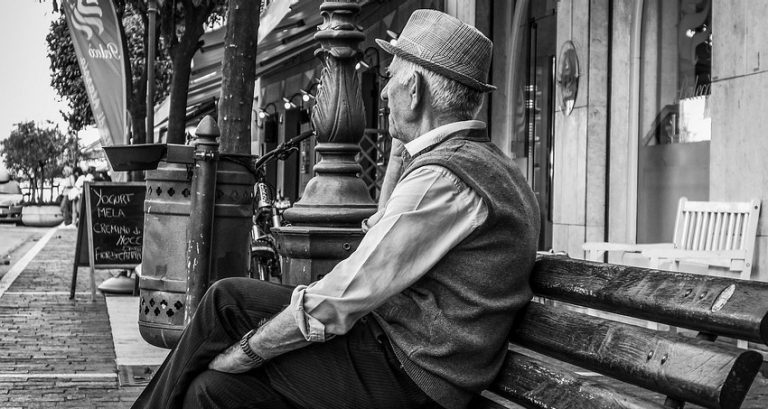COVID-19 confinement worsened older Canadians’ feelings of loneliness, according to new Concordia research

A Concordia-led study has explored the effects of the COVID-19-mandated sanitary measures on the elderly. According to the research, a majority of older Canadians experienced increased levels of loneliness as a result of certain strategies, including lockdowns and enforced confinement. Many elderly people also report higher levels of distress and insomnia.
The year-long longitudinal study of over 600 individuals living in their communities began in May 2020, shortly after Canada declared a medical emergency. The study concluded in May 2021. The research outcomes were published in the Archives of Gerontology and Geriatrics.
This study is the third in a series based on the same cohort. Previous studies looked at the trajectories of psychological distress and symptoms of insomnia.
The researchers found that living alone, having multiple medical conditions, perceiving COVID-19 as a serious health threat and having relatively few social interactions were significant predictors of feelings of loneliness.
“The goal of this study was to identify different predictors that would make people more at risk to experience these symptoms,” says study co-author Sara Matovic. Matovic is a PhD student of clinical psychology and Vanier Scholar at the Stress, Health and Interpersonal Relationships Laboratory at Concordia.
“But first we wanted to understand the different evolutions of outcomes: how different subgroups of older adults experienced distress or loneliness or insomnia over a one-year period.”
 Sara Matovic: “The goal of this study was to identify different predictors that would make people more at risk to experience these symptoms.”
Sara Matovic: “The goal of this study was to identify different predictors that would make people more at risk to experience these symptoms.”
Self-reinforcing patterns
The researchers identified three distinct loneliness trajectories. One group was composed of those who experienced stable and low levels of loneliness (17.2 percent). They reported little or no loneliness over the course of the year, despite the confinement measures. Another group reported fluctuating to moderate loneliness (48.8 percent). That group experienced increased levels of perceived loneliness in the second half of the year, which corresponded to the increasing severity of confinement measures. The third group reported sustained-elevated (34 percent) levels of loneliness that remained high over the course of the observation period.
“Perceived loneliness is different than social isolation, which is the absence of social interactions. Loneliness is a subjective feeling of lacking social relationships, a discrepancy between the desired and actual levels of social interactions,” says the study’s corresponding author, Jean-Philippe Gouin. Gouin is a professor in the Department of Psychology in the Faculty of Arts and Science.
“But we know that both social isolation and loneliness are associated with poor psychological and health outcomes over time.”
The researchers were also able to identify sociodemographic, health, psychological and social-interaction predictors that could help identify at-risk individuals.
With the stable-low group used as a comparison group, respondents in the moderate-fluctuating group were more likely to report multimorbidity, psychological distress and less face-to-face interactions. Those individuals in the sustained-elevated group were more likely to experience high levels of psychological distress and to perceive COVID-19 as a threat. Both groups that reported increased loneliness were also more likely to be female and to live alone.
Gouin warns that feelings of distress, anxiety and loneliness will likely increase as social isolation continues.
“The chronically lonely can develop cognitive biases, which will make them less likely to reach out to other people and may lead to social withdrawal. This creates a context where, on top of the physical constraints due to the pandemic, they are also creating psychological constraints because they are afraid of bothering other people or feel that they are not interesting or wanted by others,” Gouin explains.
“This group is also more likely to have heightened COVID-19 anxiety, which is contributing to their social withdrawal.”
 Jean-Philippe Gouin: “The chronically lonely can develop cognitive biases, which will make them less likely to reach out to other people and may lead to social withdrawal."
Jean-Philippe Gouin: “The chronically lonely can develop cognitive biases, which will make them less likely to reach out to other people and may lead to social withdrawal."
Reaching out helps
The researchers recommend that medical or social service workers be more aware of the benefits that social interactions can bring to people suffering from loneliness and psychological distress, and the need to overcome societal withdrawal.
Finally, as Gouin notes, help does not have to come exclusively from professionals.
“Think about the older people in your life that you may not have contacted for a long time and understand that they might benefit from you making an effort to reach out to them and making them feel you want to be in contact.”
Funding was provided by the Centre de recherche de l’Institut universitaire de gériatrie de Montréal and the Quebec Network for Research on Aging, supported by the Fonds de Recherche du Québec-Santé.
Read the cited paper: “Correlates and trajectories of loneliness among community-dwelling older adults during the COVID-19 pandemic: A Canadian longitudinal study”




